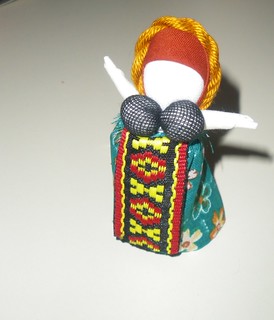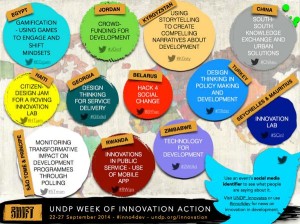Call for Proposals, Special Issue on: Social Media Adoption, Utilization, and Consequences in the Nonprofit Sector, International Journal of Public Administration in the Digital Age (IJPADA)
Paper Proposal Submission Deadline: December 1, 2014
Guest Editors: Dr. Hugo Asencio and Dr. Rui Sun (California State University, Dominguez Hills, USA)
As a group of internet-based applications, social media (Web 2.0 technologies) allow individuals to create, update, and exchange content. They also help facilitate the development of social networks in an interactive way. Compared to traditional websites (Web 1.0 technologies), given their stakeholder engagement, community building, and mobilization potential, social media can better help nonprofits accomplish their goals and fulfill their missions. Given the dearth of empirical evidence available, systematic investigations are needed to better understand social media adoption, utilization, and consequences in the nonprofit sector.
Objectives of the Special Issue:
This special issue seeks to contribute to the discourse among researchers and practitioners on the antecedents and consequences of social media adoption and utilization in the nonprofit sector. That is, what are the internal and external environmental factors that affect social media adoption and utilization in nonprofits? What are the impacts of social media adoption and implementation both within and outside nonprofit organizations? Quantitative cross-sectional or longitudinal studies using secondary data or original surveys are preferred. Qualitative multi-case or mixed-methods studies are also welcomed.
The editors invite systematic investigations on social media adoption and utilization in nonprofits providing services in areas, such as: education, healthcare, social services, environmental protection, advocacy, public awareness, human and civil rights, and so forth. Cross-country comparative studies are also welcomed.
Recommended Topics:
Topics to be discussed in this special issue include, but are not limited to the following:
- Internal, external environmental factors and social media adoption
- Internal, external environmental factors and social media use
- Social media use and marketing
- Social media use and communications
- Social media use and fundraising
- Social media use and volunteering
- Social media use and advocacy
- Social media use and civic engagement
- Social media use and organizational learning
- Social media use and organizational capacity
- Social media use and collaboration
- Social media use and performance evaluation
- Social media use and collaborative governance
Submission Procedure:
Interested authors are invited to submit paper proposals (500 words) for this special issue by December 1, 2014. All paper submissions must be original and may not be under review by another publication. INTERESTED AUTHORS SHOULD CONSULT THE JOURNAL’S GUIDELINES FOR MANUSCRIPT SUBMISSIONS at
http://www.igi-global.com/Files/AuthorEditor/guidelinessubmission.pdf.
All submitted papers will be reviewed on a double-blind, peer review basis. Papers must follow APA style for reference citations.
About the International Journal of Public Administration in the Digital Age (IJPADA):
Created in 2014, IJPADA is an international journal that examines the impact of public administration and information technology (IT) in developed and developing countries. Original research papers published in IJPADA focus on the impact of new and innovative technologies on improving public service delivery in public and nonprofit organizations. This journal will also provide case studies examining technology innovations in specific countries. The editor invites author(s) to submit original research papers that examine important issues in public administration and information technology.
This journal is an official publication of the Information Resources Management Association
Editor-in-Chief: Dr. Christopher G. Reddick (The University of Texas at San Antonio, USA)
Published: Quarterly (both in Print and Electronic form)
IJPADA is published by IGI Global (formerly Idea Group Inc.), publisher of the “Information Science Reference” (formerly Idea Group Reference), “Medical Information Science Reference”, “Business Science Reference”, and “Engineering Science Reference” imprints. For additional information regarding the publisher, please visit www.igi-global.com.
Important Dates:
December 1, 2014: Paper Proposal Submission Deadline (500 words)
December 15, 2014: Proposal Acceptance Notification
May 1, 2015: Full Paper Submission
July 1, 2015: Peer Review Results
September 1, 2015: Final Chapter Submission
September 15, 2015: Final Acceptance Notification
Inquiries and paper proposals should be forwarded electronically to Dr. Hugo Asencio (hasencio@csudh.edu) or Dr. Rui Sun (rsun@csudh.edu).



